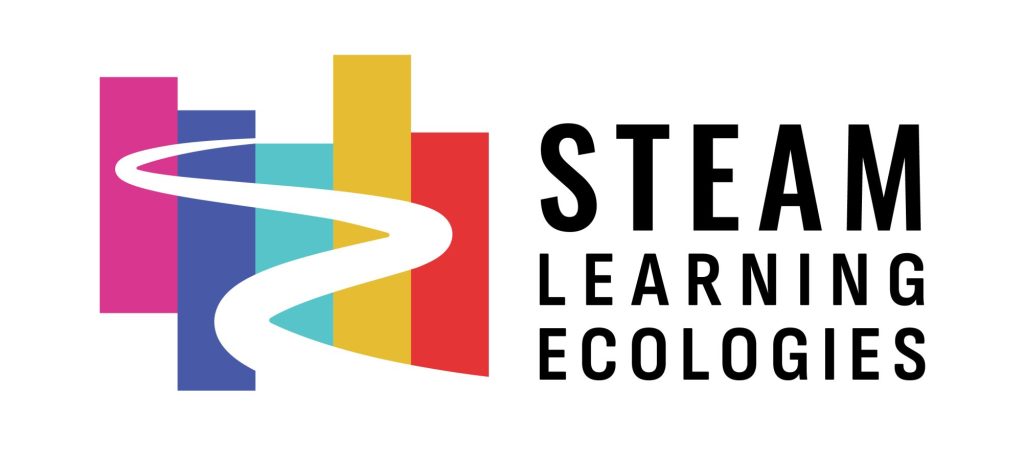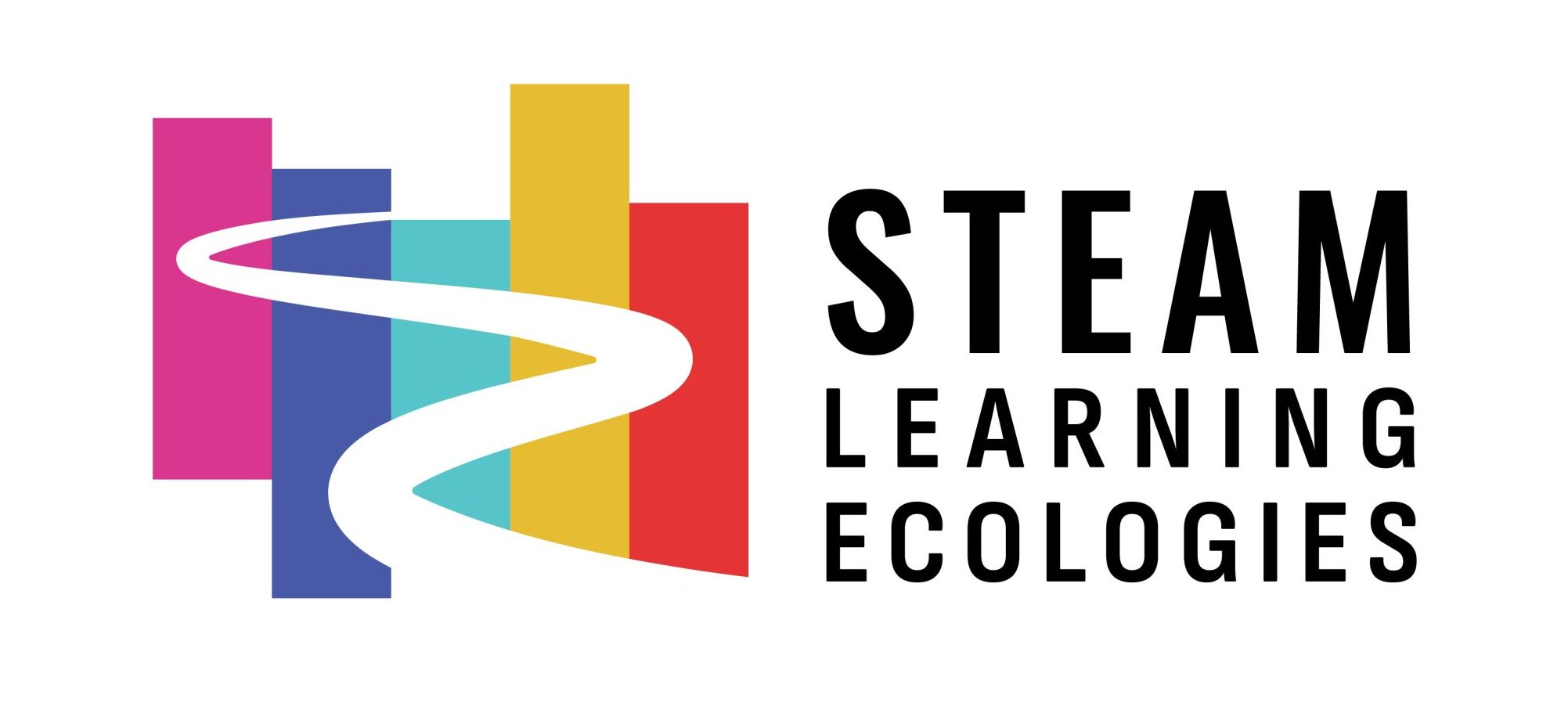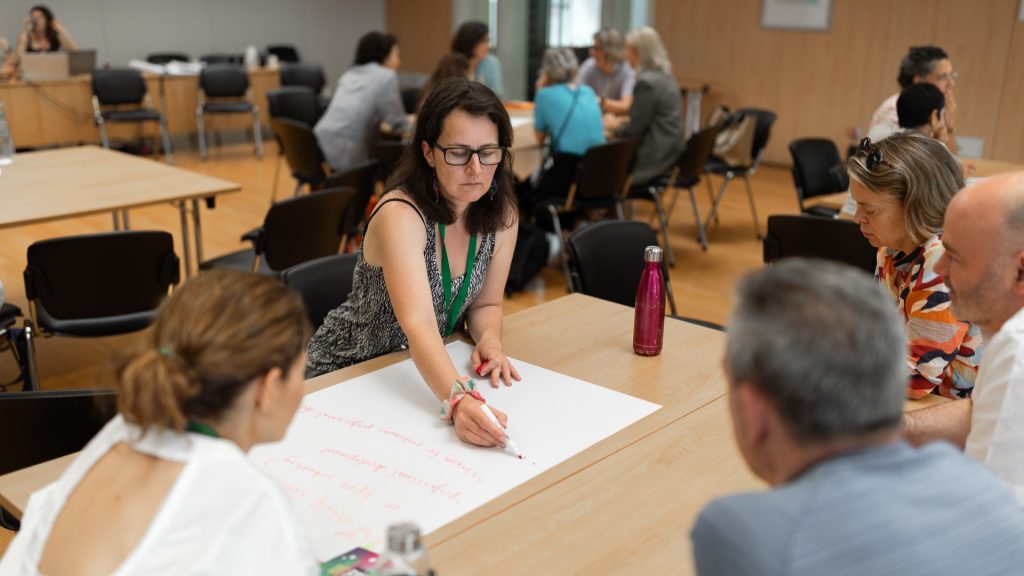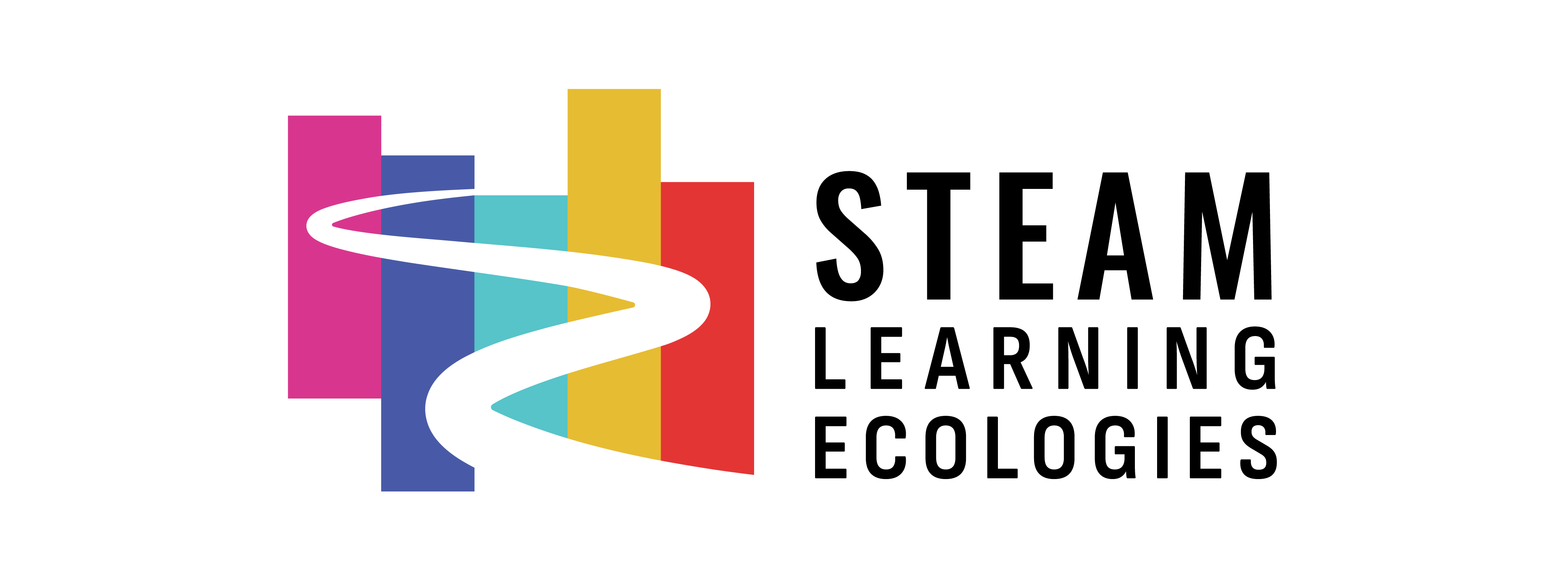In June 2024, Ecsite hosted over 900 participants in Slovenia, making Ljubljana a bustling hub for science museums, research centers, academics, industries, policy makers and educators.
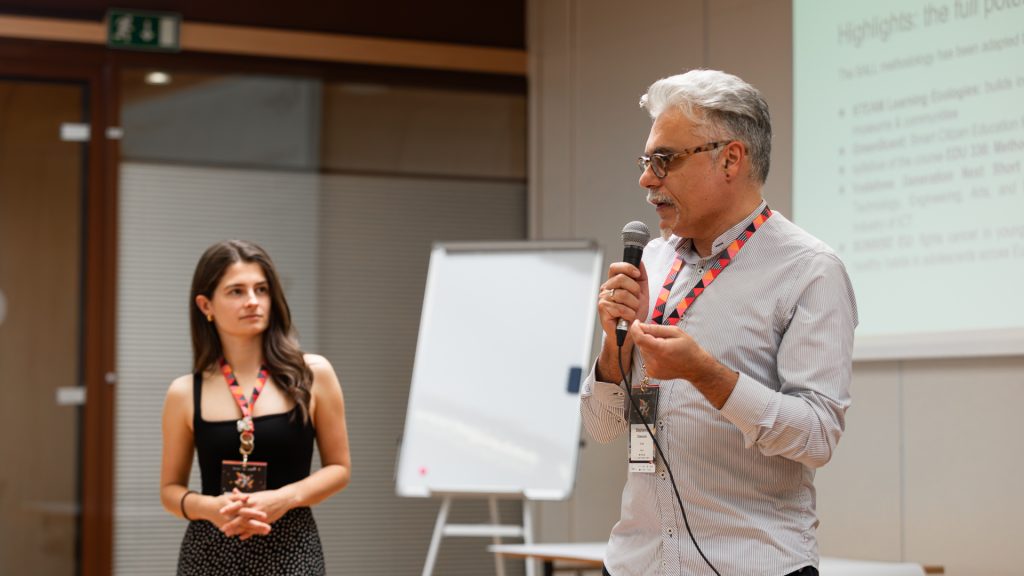
During the last day of the conference (on 8 June), the STEAM Learning Ecologies (SLEs), Road-STEAMer, Make it Open (MiO), and School as Living Labs (SALL) projects (under Horizon 2020 and Horizon Europe) gained further visibility and became a focal point for those interested in open schooling and EU-funded projects through a dedicated session. The session was divided in two parts and included:
- a section where STEAM experts and open schooling enthusiastics shared best practices and their experiences with the concept and its potential
- an interactive world café workshop
Successful examples of implemented Open Schooling Practices
The power of Makers Spaces
Katarina Stekić from the Center for the Promotion of Science (CPN) presented the impact that the Science Club Belgrade Makerspace has on visitors, equipped with the right tools (technical and digital) and expertise (professional) to promote the accessibility of science. The Makerspace has also been used for the Serbian pilot SLE on psychophysical health and wellbeing, when students printed 3D models of the equipment they would like to have in their gym.
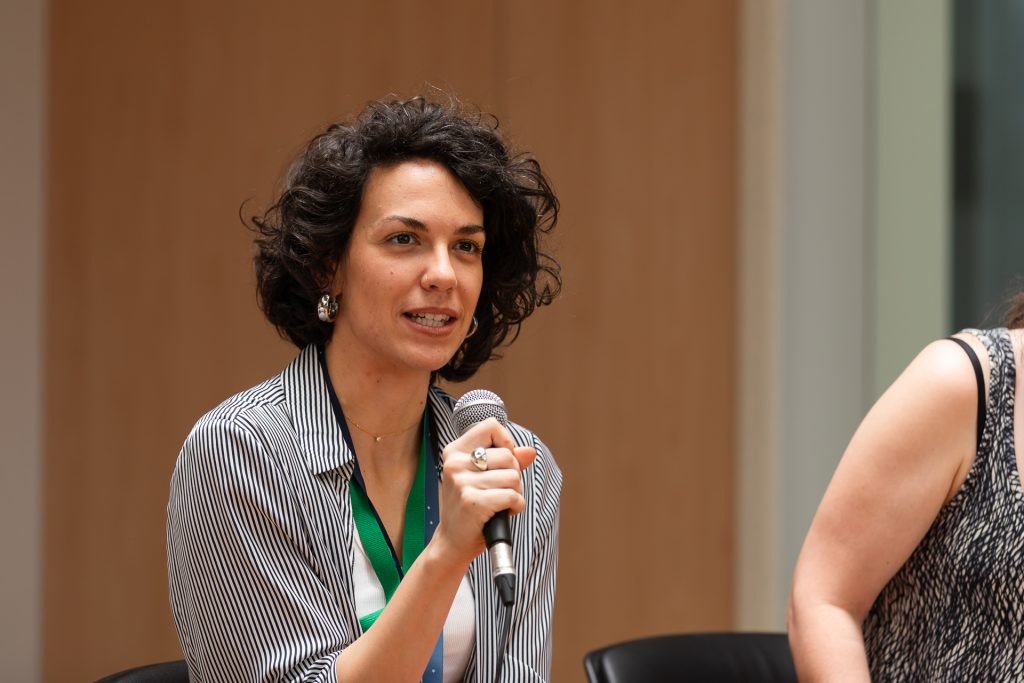
Open schooling and Make it Open
Rony Ben-Chaim from the Bloomfield Science Museum in Jerusalem presented the MiO project and its main outcomes. MiO is a gateway to open schooling where students from 150 schools and 10 countries became key community actors and perceive themselves as agents of change. The project also designed a navigator, a repository of Open Schooling learning scenarios and lesson plans.
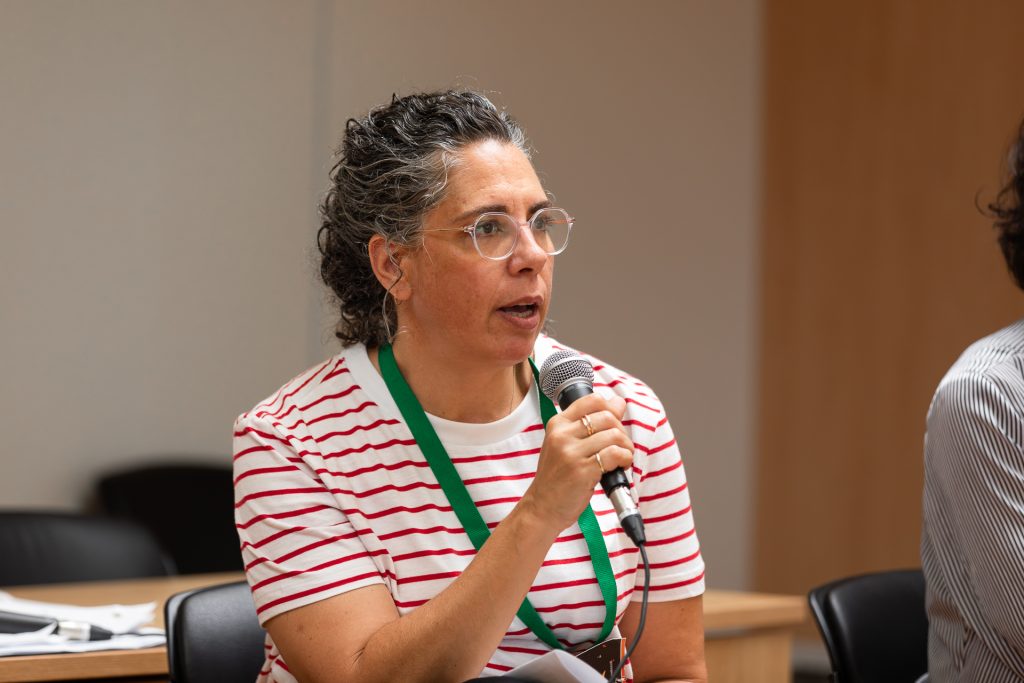
Arts and Science together
Mary Deely from the Irish Centre for Research in Medical Devices (CÚRAM) proposed recent initiatives of her organisation merging science education and creative and artistic approaches together – all encapsulated within the concept of STE(A)M. This interdisciplinary approach, she argued, is key to encourage students of all types of subjects and convince different stakeholders to be involved and co-create activities together. An example showed was that of the Irish pilot SLE combining science on human brain and the creation of a relevant mosaic.
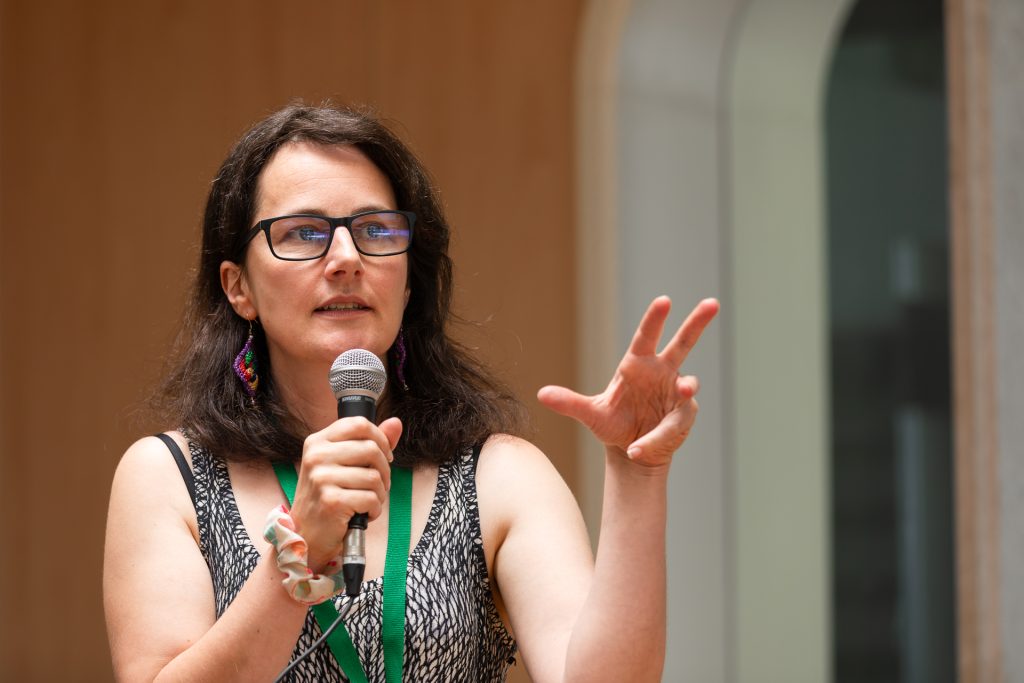
Open schooling, SALL, and food transformation
Katarina Riviou from Ellinogermaniki Agogi exemplified the potential of the open schooling concept by presenting some activities designed by SALL – such as the exploration of new approaches to overcome the growing division between food overconsumption and food knowledge.
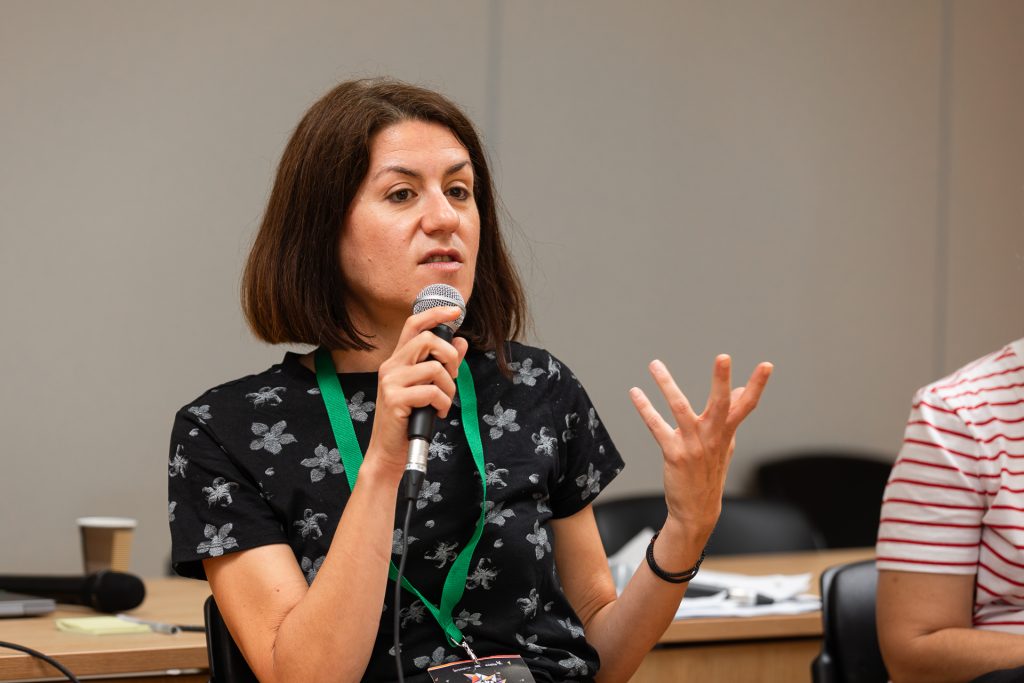
The world café workshop and conclusions
Following the presentations of the speakers, participants reflected on diverse initiatives and opportunities at local, national, and European levels. The main topics discussed were ways to involve teachers into this approach, sustainability of open schooling projects, and impact maximisation. By sharing best practices, exchanging ideas, and identifying potential areas for collaboration, participants were inspired to explore the full potential of open schooling within their unique contexts.
The session concluded with an overview of Ecsite and its members’ ongoing efforts to promote the importance of open schooling at the European level. Additionally, there was a presentation of initiatives carried out by STEAM Learning Ecologies (anticipated by Katarina Stekić and Mary Deely), the STEAM criteria identified by Road-STEAMer, and the latest Road-STEAMer infographic illustrating the project’s conceptual framework.
Do you want to know more and keep up to the latest open schooling initiatives? Register to the OStogether newsletter!
